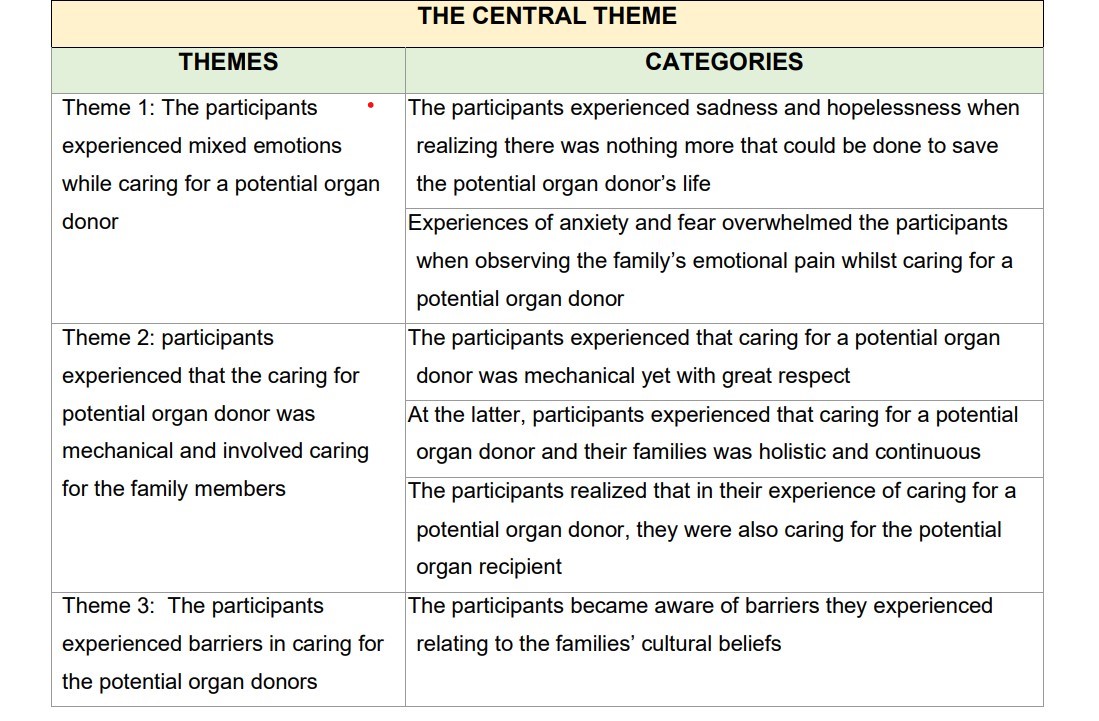Challenges experienced by nurses caring for donors at a tertiary hospital in South Africa
Anja Meyer1.
1Transplant, Wits university , Johannesburg , South Africa
Introduction: Organ failure was comparable to a death sentence before the early 1950’s. In modern times, organ transplantation has become one of the medical life-saving miracles for patients with end organ failure. There is a marked imbalance between organ demand and supply in South Africa (S.A) due to paucity of deceased donors. Professional nurses play a vital role in management of deceased donors and their families. The aim of this study was to explore the experiences of professional nurses when caring for a potential organ donor.
Methods: A descriptive phenomenological qualitative research method was used once ethics was obtained from the Research Ethics Committee, Higher Degrees Committee of the University of Johannesburg. Although face to face interviews were planned, lockdown due to the Covid 19 pandemic resulted in this being changed to online/telephonic interviews during the study period which was from
Results: Interviews were conducted with seven registered nurses, all of whom been critical care trained and had experience working in critical care units. Most of the nurses (6/7: 85.7%) were of African race with five (71.4%) being female. The median age of the participants was 41 years (IQR 32-56) with the median age of experience in the field being 10 years (IQR 4-20).
Three (3) themes emerged: The participants experienced mixed emotions ranging from sadness and hopelessness to anxiety and fear while caring for a potential organ donor. They also experienced that caring for a potential organ donor was mechanical and involved caring for the family members as well as experiencing barriers in caring for the potential organ donors. These barriers to organ donation stemmed from diverse religious and cultural beliefs in the South African population.

Conclusion: The study outlined the need for training, support and awareness of professional nurses who care for potential organ donors. The key was to understand the experiences of professional nurses caring for potential organ donors. Formal training programmes and support structures, are some recommendations to assist the professional nurses overcome their challenges whilst caring for potential organ donors
